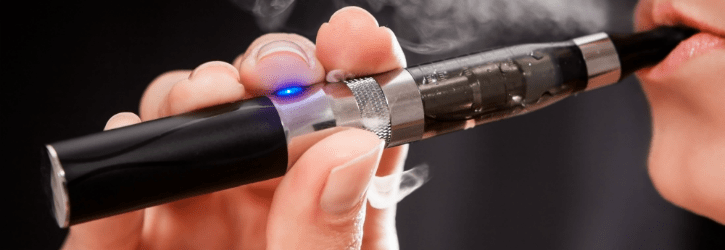
U.S. Metro ventilation records may have been falsified
Lawsuits are expected to be brought against the U.S. Metro system over reportedly “deadly smoke” choking dozens back in 2015 at L’Enfant Plaza.
An internal review found that four important maintenance records for the transport ventilation systems may have been tampered with; a discovery prompting investigations into the department’s documentation practices.
An internal report confirmed that the office of Quality Assurance, Internal Compliance and Oversight (QICO) “identified several instances of maintenance record modification.”
Continue Reading…

Regulators say Tesla Autopilot to take partial blame for fatal 2016 crash
Investigators have suggested that Tesla’s auto-driving system is to take some of the blame for a fatal 2016 crash. They have recommended that the ‘Tesla Autopilot’ system be declared as a contributing factor in the tragic incident because it allowed the driver to go for long periods of time without looking at the road or taking control with the steering.
This news may serve as a stumbling block with the U.K. set to allow for autonomous vehicles to be on the roads in the next few years. Are they safe? What are the dangers? Who is liable if things go wrong? These are questions that need answering before such technology is allowed on our very busy roads.
Continue Reading…

More allegations that Herbalife’s supplement products cause liver damage
In August 2017, a claim was filed by a woman against Herbalife on the basis that their products allegedly gave her liver damage. The claimant alleges that after taking their supplementary products for six years, she has sustained irreversible liver damage and will need to undergo a transplant.
The lawsuit alleges that Herbalife,”never warned her the ingredients can build up to toxic levels.” It continues to assert that, “Herbalife’s description of the products as safe and healthy when used in compliance with Herbalife’s usage guidelines was false.”
Continue Reading…
Servier to face French Courts over deaths reportedly linked to diet pill
Pharmaceutical drug maker Servier are set to be facing French prosecutors in Court over hundreds of deaths that have reportedly been associated with its weight-loss pill, Mediator.
Once marketed as a diabetes treatment, the drug was widely prescribed as a diet-pill as it apparently helped to suppress appetites. However, it has since been linked to over 500 deaths in France, becoming one of the nation’s worst health scandals.
The U.K. never authorised the drug, but Mediator may have nonetheless found its way across the channel through online markets.
Continue Reading…

Student sues Amazon after phone charger ignites in his pocket
A customer has reportedly sued online-retail giant Amazon after a portable phone charger purchased from their website apparently burst into flames in his pocket.
The student suffered first, second and third degree burns in the incident.
The University student alleged that he was out playing pool when he borrowed the portable external charger from his friend to charge his own phone. He connected the charger to his phone before pocketing it. His lawsuit explains that the charger overheated and then “spontaneously ignited” inside his trouser pocket.
Continue Reading…

10,200 refurbished batteries for Samsung Galaxy Note 4 recalled over risks of overheating
Only a year after its Galaxy Note 7 was hastily recalled after numerous reports of explosions, refurbished Samsung’s Galaxy Note 4’s are also seeing similar issues.
Some 10,200 Galaxy Note 4’s devices were refurbished and distributed between December 2016 and April 2017. However, it has since been discovered that some of the refurbished devices contain counterfeit batteries and may overheat, posing risks of burning users or apparently even spontaneously combusting.
Samsung has announced that “FedEx Supply chain is conducting this recall of non-genuine Samsung batteries as some of them are counterfeit.”
Continue Reading…

Kobe Steel admits to falsifying data over its product standards, affecting 500 firms
Japan’s third largest steel maker, Kobe, has revealed that they falsified information about the standards and safety of their steel products.
Kobe supplies steel to major companies across the globe, such as manufacturers of cars, aircrafts, trains and even space rockets.
The scandal has prompted major corporations to double-check their products. Some of Kobe Steel’s consumers and users include: Central Japan Railway; Hitachi (its trains are used in Britain); Mazda Motor Corp; Subaru Corp; Toyota Motor Corp; Mitsubishi Heavy Industries; Honda; General Motors; Daimler; Airbus
Continue Reading…

Johnson and Johnson accused of covering up evidence associating carcinogenic properties in its talc products
Thousands of claims are being made against Johnson and Johnson for the allegedly harmful properties their famous talc powder is said to have had on users worldwide.
Johnson and Johnson have been vehemently denying the allegations, citing scientific studies to prove there is no cancer risk related to their talc. However, one lawsuit made on behalf of numerous woman suffering from ovarian cancer blames Johnson and Johnson for giving them ovarian cancer, and alleges the company has been lying and conspiring to hide the truth for decades.
Continue Reading…

Shrinking plane seats – declining safety for passengers?
These days, some flights are getting cheaper and more frequent, making that city break to Rome so much easier. But it seems that with cheaper seats, there may be a small compromise being made: airlines are making economy aeroplane seats smaller and smaller.
To save money, airlines are reportedly packing their planes with as many passengers as they can by redesigning seats to be thinner and reducing leg room. These changes aren’t just to the detriment of taller people who may have to almost hug their knees or sit at an awkward angle to squeeze their legs in sideways, but reducing the space between seats may reportedly be putting passengers’ lives at risk.
Continue Reading…

Regulatory advice on Kratom drug after 36 deaths
Regulators have issued an advisory warning on 14th November to stop people taking Kratom after 36 deaths have been possibly associated with the drug.
Already banned in several countries, the “pick-me-up” natural drug is created from picked Kratom leaves from jungles all over South East Asia. It was originally used by farm labourers to help them get through working on the fields.
Kratom’s active ingredient is Mitragynine – a chemical that has adverse effects such as nausea; loss of appetite; constipation; dry mouth; trouble sleeping; and brain fatigue. Kratom itself can produce side effects of seizures, itching, increased sensitivity to pain, sweating, liver damage and addiction.
Continue Reading…

E-cigarettes may increase risk of lung diseases and be just as bad for health as cigarettes!
The introduction of the E-cigarette has been hailed as a revolutionary modern alternative to cigarettes, often seen as healthier because they don’t contain tobacco or the assortment of other harmful chemicals found in traditional cigarettes. However, some studies suggest that E-cigs can be equally as harmful because the cocktail of chemicals they do contain may be causing inflammatory diseases.
If this is found to the the case, where does the E-cig revolution go from here?
Continue Reading…

Court dismisses Boston Scientific’s appeal over £20 million settlement for pelvic mesh lawsuit
A federal court has dismissed Boston Scientific’s appeal against a £20 million settlement sum awarded to four claimants who sued the company for alleged defective pelvic mesh implants.
The claimants argued that the Pinnacle mesh used to treat pelvic organ prolapse and female stress urinary incontinence was defective and caused significant pain and injuries.
Pain, bleeding and infection are potentially commonplace if the devices fail and the plastic mesh fuses and cuts in to the patient. As they cannot usually remove the mesh from the vaginal walls, the outcome for those whose devices fail can be lifelong and serious.
Continue Reading…